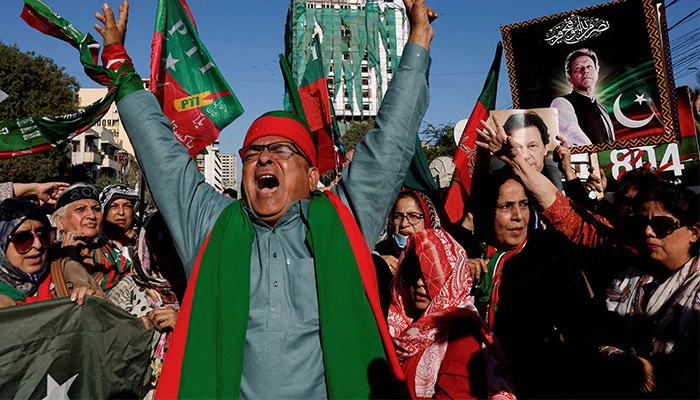Pakistan Tehreek-e-Insaf (PTI) has unexpectedly shifted its plans for a large rally in Rawalpindi to a protest instead. The party has withdrawn its application for the rally and is now mobilizing workers for the demonstration.
Originally, PTI had filed a petition with the Lahore High Court’s Rawalpindi bench seeking permission for the planned September 28 rally after the district administration denied a No Objection Certificate (NOC).
However, PTI lawyer Muhammad Faisal Malik withdrew the petition today upon instructions from PTI Chairman Imran Khan.
In a separate development, PTI lawyers held a brief protest outside the Supreme Court on Friday, with strict security measures in place. Notable attendees included Salman Akram Raja, Shoaib Shaheen, Laif Khosa, Azam Swati, and Niazullah Niazi.
Speakers at the protest asserted that the Supreme Court serves as a beacon of hope, expressing concerns that the government aims to undermine its authority.
Niazi stated that the protest was against the government’s proposed “Form 47” and its constitutional package, particularly the establishment of additional constitutional courts, emphasizing that such courts already exist.
In light of the planned protest in Rawalpindi, PTI leadership in Khyber Pakhtunkhwa has directed party workers and officials to gather at 10:00 AM for participation. A meeting held at the Chief Minister’s House in Peshawar instructed officials and assembly members to travel to Rawalpindi with the workers.
PTI sources confirmed that workers from Peshawar are set to depart at 10 AM, with Chief Minister Ali Amin Gandapur expected to join them in a convoy from Swabi.
Preparations in Rawalpindi are underway, with officials from Northern Punjab assigned specific tasks. Members of the National and Provincial Assemblies from ten districts have been instructed to bring along 100 supporters each.
Local leaders are also coordinating accommodations and meals for arriving workers. Meanwhile, Rawalpindi police are monitoring hotels and inns to ensure security during the protest.


